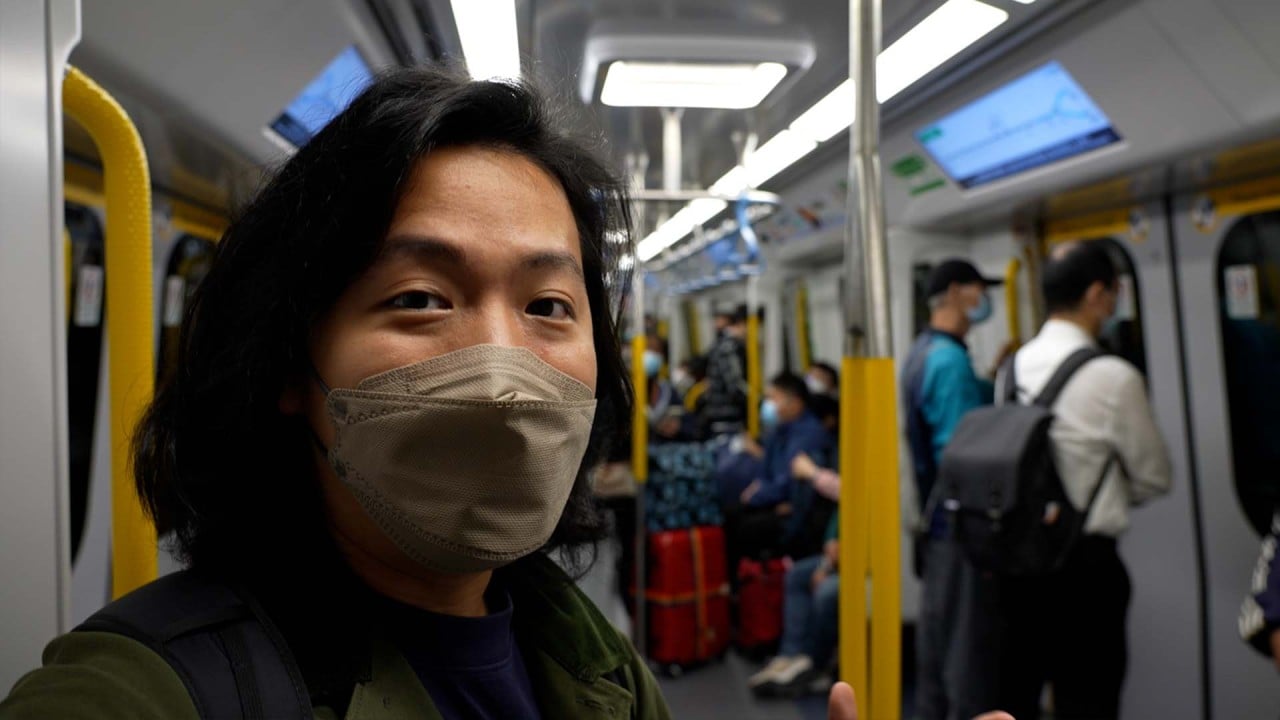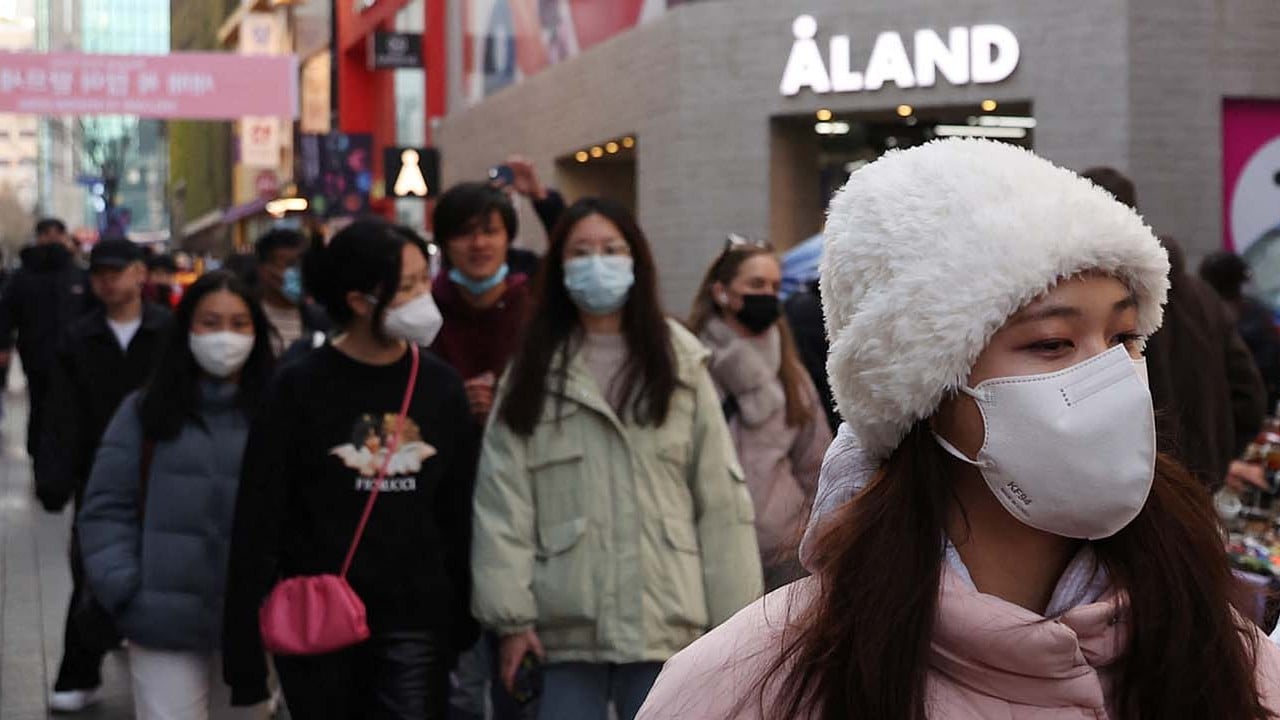
Mainland Chinese rush to return to Hong Kong, Macau post zero-Covid nears 1 million
- After nearly three years of no domestic travel, hundreds of thousands of Chinese citizens are applying for travel permits and documents
- Immigration authority reports growing demand since border restrictions were relaxed in December
Applications were up by 147.6 per cent from before the policy change, according to Liu Haitao, director general of the National Immigration Administration’s department of frontier inspection and management.
Hongkongers rush to buy high-speed rail tickets to mainland ahead of service launch
Liu told a press conference on Friday that travel demand has been growing since China relaxed its border restrictions in December, with around 998,000 mainland residents applying for travel documents to Hong Kong, Macau or Taiwan, and 353,000 people applying for a new passport.
The relaxation followed a ban of almost three years on domestic travel.
Ray Chui Man-wai, chairman of Kam Kee Holdings, which runs over 40 restaurants in Hong Kong, said they had hired more staff to prepare for an expected influx of mainland visitors over the Lunar New Year holiday.
Ng Kwan-sing, vice-chairman of the Hong Kong Taxi Council, was also expecting the return of mainland visitors to be a boon for the taxi sector, which had been hit hard by the pandemic.
He said the recent lifting of social distancing measures had helped the city’s daytime taxi drivers get their earnings back to about 90 per cent of pre-pandemic levels and he hoped mainland travellers would deliver the industry a full recovery.
About 65,000 mainland visitors can enter Hong Kong every day under the current quota reservation system, in which 50,000 places are allocated to travellers using the land-based crossings.
Secretary for Security Chris Tang Ping-keung on Thursday said authorities were reviewing whether extra arrangements could be made to meet demand. The Hong Kong government did not respond to a request for comment on Friday.
Liu from the immigration department said border crossings had been increasing dramatically, with an average of 490,000 people leaving or entering the mainland each day from January 8-12, a 48.9 per cent increase since the policy change and a rise of 26.2 per cent on the same period in 2019.
Most travellers – 424,000 people – crossed the border by land, with the Futian checkpoint in Shenzhen recording the biggest increase, with 21,000 people crossing each day.
Airport departures and arrivals now stand at 11 per cent of the total from the same period in 2019, with the highest traffic recorded at Shanghai’s Pudong airport, which saw 11,000 passengers each day.
At 250,000 travellers a day, the number of arrivals is slightly higher than departures from the mainland and represents a 54.7 increase on the total before the policy change.
Kong Fanwei, deputy director of the Flight Standards Department at the Civil Aviation Administration of China, said international flights had increased since the country eased restrictions. He said there were 563 flights planned for 63 international destinations this week – back to 6 per cent and 87.5 per cent of the pre-pandemic numbers, respectively.
The foreign ministry’s director general of consular affairs Wu Xi said all air, land and sea border checkpoints had been stable and orderly during the gradual increase of inbound and outbound travellers.
Wu also responded to concerns about the 48-hour Covid-19 test requirement, saying it was a necessary move to avoid cross-border transmission.
“Downgrading the national Covid response to Category B did not mean there would be no restrictions at all,” Wu said.
“The infectiousness of the Omicron strain is on the rise, especially during long-distance, cross-border travel where passengers spend long periods of time in confined spaces, where the risk of infection is high,” she said.
“Therefore, the Ministry of Foreign Affairs requires personnel coming to China to undergo a nucleic acid test 48 hours before boarding the plane to prevent the spread of the virus and ensure the safety of passengers.”
Wu said Chinese customs officers would only conduct PCR tests on passengers who had symptoms on arrival.
Liu from the immigration department said that after visa services for foreigners in China resumed, around 100,000 foreigners had either entered or left the country, with around 15,000 visas having been processed.
He said China was committed to opening up and would facilitate the needs of foreigners living in the country, and called entry measures imposed by some nations on Chinese nationals “discriminatory”.
Chinese Centre for Disease Control and Prevention researcher Chen Cao told the Friday press conference that no locally transmitted XBB.1.5 cases had been reported in China so far. He said BA.5.2 and BF.7 were still the dominant subvariants, accounting for 97 per cent of cases detected between December 1 and January 10.
Separately, foreign ministry spokesman Wang Wenbin hit back on Friday after the US Department of State said travel restrictions on arrivals from China were due to a lack of transparency in its Covid data. Wang called on the US to share its data in time as the XBB.1.5 subvariant spreads in the US.

 - Kawala Xie.jpg?itok=NogZcyZ-&v=1661304068)


